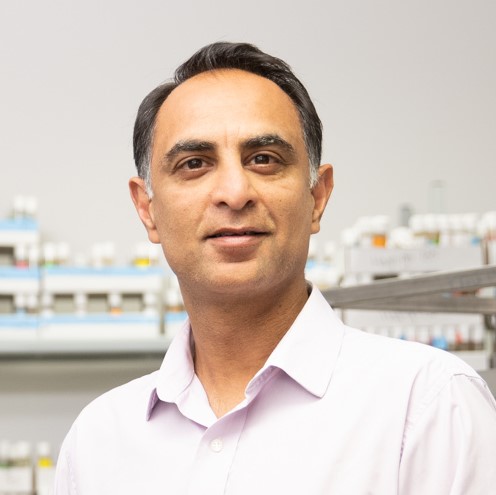Yes, we already know that, says Buck professor Pankaj Kapahi, but what are we doing about it?
Hippocrates may or may not have actually said “‘let thy food be thy medicine and thy medicine be thy food,” but regardless, it sums up an inescapable concept: our bodies are machines, and how they run depends on the fuel we feed them.
The journal Nature ran a news feature last month summarizing some of the promise, and lack thereof, of clinical trials that demonstrate the connections between diet and health. Benefits have been shown for various dietary interventions to treat or delay some conditions, including cardiovascular disease, diabetes, cognitive decline, migraines and women’s health issues such as polycystic ovarian syndrome (PCOS). Common sense diets that include ample vegetables, fruits, whole grains and low fat dairy, with reductions in salt, saturated fat, and alcohol, fare well regarding health outcomes.
However, in what is becoming the refrain for anything related to diet and health, more research is needed; large-scale randomized trials of dietary interventions, difficult to conduct, are required to make more specific recommendations.
 The need for further study is not even the point, says Buck Professor Pankaj Kapahi, PhD, who has been studying the connections between diet and age-related diseases for decades.
The need for further study is not even the point, says Buck Professor Pankaj Kapahi, PhD, who has been studying the connections between diet and age-related diseases for decades.
“The studies get done but nobody pays attention to the findings,” says Kapahi. “My big revelation after doing this for so long is that food literally can be medicine, like a pill with all the good stuff inside to make people healthier, but it has been made impossible for people to take.”
Even in clinical practice, where there are accepted clinical guidelines about dietary interventions, it is rarely implemented by healthcare professionals. Additionally, there are cost and access barriers. Kapahi and the experts interviewed in the Nature commentary agree that one of the biggest hurdles in reducing nutrition insecurity is the lack of access to healthy and affordable foods. “Yet our government is subsidizing the worst kind of food,” says Kapahi, including unhealthy fats and refined grains.
“Instead of the great news that certain ways of eating are good for you and can help you stay healthy, the market forces are such that there is no incentive to think like that,” he says. “The news is that we are so stuck that we can’t do anything about it to get out of this cycle.”
It’s all about the money, he says; there is no money to be made from incentivizing health.
“We are a ‘sickcare” society,” he says. First people must fall sick, then they have to be treated, that’s how money is made. Nutrition is important, but no one is making money out of improving people’s health with basic foods. The system is creating a cycle of disease, then providing a drug to fix the problem.
“At the heart of it, the answer is very simple: we could solve diseases by improving nutrition,” he says. “Despite this being understood by experts, we are not moving at all toward policy change,” which dictates what studies are funded and what foods are subsidized.
The only fix is political action, according to Kapahi.
“The longer I am in this field, I realize that unfortunately no one at the top seems to see the damage their decisions are making on people’s health,” he says, adding that much of their decision making is heavily influenced by lobbying. “If there is no willingness to change from the top, maybe people have to be social activists and make it happen for themselves.”
What does Kapahi recommend? He says that his thoughts resonate with what Michael Pollan has already said: “Eat food. Not too much. Mostly plants.” Get involved with politics and policymaking at any level. Agood example of civic pressure, he points out, are the bans of sugary drinks in schools. Discuss with doctors or nutritionists whether andwhat dietary changes could help you.
“All this scientific research is useless if the culture doesn’t change and we don’t turn this around ourselves,” he says. “What is the point of finding 100 ways bad food makes you sick and good food makes you better” if nobody is taking advantage of the insight?
“Eating badly is worse than smoking, and just like smoking it is time to do something about bad food as well,” he says.


Wonderful beat I wish to apprentice while you amend your web site how could i subscribe for a blog web site The account aided me a acceptable deal I had been a little bit acquainted of this your broadcast provided bright clear idea
Thank you for the good writeup It in fact was a amusement account it Look advanced to far added agreeable from you However how could we communicate